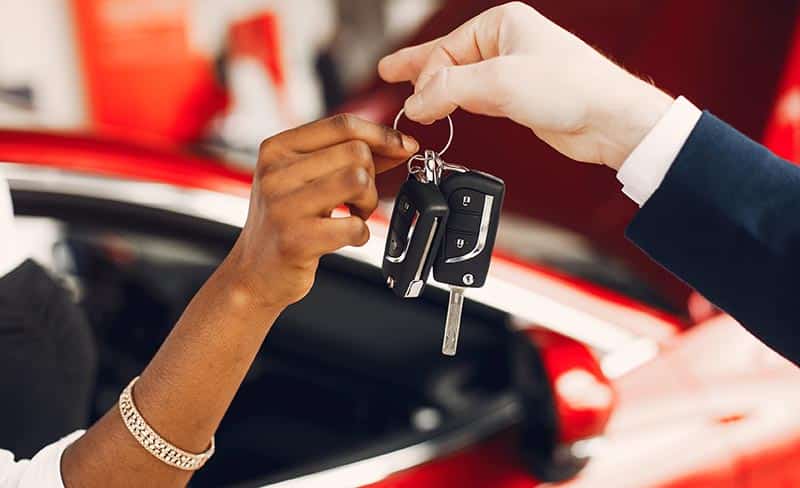If you buy a new car that’s a dud in California, you have recourse.
The state’s lemon law protects consumers from vehicles with major issues in the earliest days of ownership.
But what if you buy a vehicle and simply regret your purchase?
Or you find an issue with the contract?
Or you think you were misled about the car’s condition?
Returning a car in California isn’t easy, but, in some cases, it can be done.
New Car Return Law

There is no cooling-off period in California for new cars.
Once you sign the contracts for a new car in California, the deal is final and the dealership is under no obligation to accept the car back.
The only exception to this rule is if the car is a “lemon,” in which case it is subject to the state’s lemon law.
Used Car Return Law
If you are buying a used car in California, you do have the option (and the right) to purchase a cooling-off period.
This used car cooling-off period is two (2) days, and must be purchased before you leave the car dealership for it to be valid.
If you purchase a cooling-off period in California for a used car, you may return the car within the cooling-off period for whatever reason. This includes simply changing your mind.
To be eligible for a cooling-off period, more formally known as a contract cancellation option, used cars must be priced below $40,000 and sell from car dealerships.
Private parties do NOT have to offer a cancellation option to buyers.
Contract cancellation options typically cost between $75 and $400, depending on the price of the vehicle.
If you do purchase a cancellation option on a new car and decide to return the car, the dealership may also legally charge a restocking fee.
Restocking fees on used cars are between $175 and $500, depending on the price of the car, and capped by law.
When you return the car, the dealership must roll the original contract cancellation fee into any restocking fee.
So, if you paid $75 for the option to cancel and the restocking fee for a vehicle is $175, the dealership may only charge you an additional $100 to restock.
This should all be spelled out in the contract cancellation option paperwork.
Dealership Return Policies
While paying an upfront cancellation fee is the only way you can return a (used) car in California under the law, you do have one other means of returning a vehicle without a fight – a dealership return policy.
Some used car dealerships DO have them. Not many, but some.
CarMax is the largest, most well-known used car dealership with hassle-free returns. They offer a 30-day (or 1,500-mile) car return window, during which you can return a vehicle for any reason.
Though other dealerships with return policies are few and far between, a handful do exist.
Return windows at other dealerships are typically much shorter (some simply don’t charge for the two-day cooling-off period), but you can find a handful of dealerships that accept returns at the local level.
If a car dealership does NOT have a stated/posted return policy, you can be pretty sure they don’t take returns.
You can TRY returning the car to the dealership if you have buyer’s remorse, but the chance they’ll take it back are slim and they are under no obligation to.
What if I didn’t buy a cooling-off period and there’s something wrong with the contract?
Not paying for a cooling-off period doesn’t necessarily mean you cannot return a used car in California.
If you discover the salesman at the dealership misled you about the car’s condition or something in the contract, you can still attempt to return the vehicle.
However, the burden of proof will be on you.
Ideally, you’ll have evidence of something contradictory in the contract or will have a mechanic inspect the car who can provide proof that something about the vehicle doesn’t match its paperwork.
Just keep in mind that dealerships without return policies are not required to accept returns and they may refuse.
If this happens, you can file a claim against the dealership with the state or sue them in court.
What if I didn’t buy a cooling-off period and there’s something wrong with the car?
If you didn’t buy a cooling-off period and there’s something wrong with the vehicle, it’s highly dependent on the circumstances of purchase as to whether or not you can return it.
If the car is still under its original warranty, you have an automatic lemon law claim, which eases the process.
Even if the vehicle is not under its original warranty, if there is a warranty attached to the vehicle by the dealership, you may be able to take action under the federal Warranty Act.
The same is true for vehicle service plans, which are treated as a type of warranty under both state and federal law.
If there is no warranty (or service plan) attached to a car, however, you have very little recourse if the car turns out to be a lemon.
That’s why it’s essential to inform yourself before visiting a dealership, to take any vehicle on a thorough test drive, and to opt-in to the contract cancellation option if you are uncertain of the purchase.
Where can I file a complaint against a dealership in California?
The same system that can help you with a lemon law claim in California can help you with any dispute about returning a car in the state.
The first step is arbitration. You can see a list of state-certified arbitrators at State-Certified Arbitration Information.
If arbitration fails, you can file a consumer complaint with the California Attorney General or take the matter to court.
Just keep in mind, used cars without warranties or service plans in California are sold “as is” and the burden of proof is on the buyer.
So, if you want to press the matter of returning a car to a dealer, you should have a really good reason and, ideally, some evidence.
General Car Return FAQs

When should you attempt to return a car?
Even if you didn’t buy a cooling-off period, there are some instances in which you should still attempt to return a vehicle (either new or old).
Times when it is appropriate to try to return a car are:
- When there is a significant defect that impairs performance or safety. (This is especially true if you are taken on a pre-planned test drive by the car’s seller that doesn’t give you the opportunity to fully test the car.)
- When the salesperson misled you about the contract, price, or vehicle in some way.
Just keep in mind, you will most likely need proof of your claim, and since communication with a salesperson is almost entirely verbal, it may be hard to prove something a salesperson said.
When should you NOT attempt to return a car?
When you simply changed your mind.
It sucks to make a big purchase and then regret it, but it’s not the car dealer’s fault if you do.
If you have no true reason for returning a vehicle except that you’ve decided you no longer want the car or can’t afford it, it is very unlikely the dealership will take it back.
And they are under no obligation under the law.
Still, if you’ve bought a car and realize it is going to greatly tax your budget, it may be worth pleading your case.
Just don’t be surprised if you don’t get the answer you want, and know the law is on the dealership’s side.
